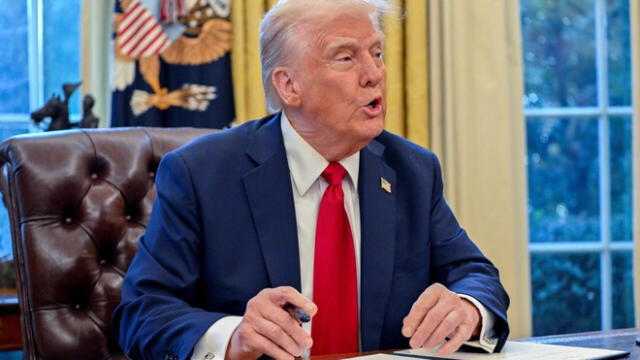Trump to impose 25% tariffs on Mexico and Canada from February 1 and threatens China with the same
US President Donald Trump will impose 25% tariffs on imports from Canada and Mexico starting February 1, escalating trade tensions. The move is expected to impact key industries.

President Donald Trump has confirmed that he will impose 25% tariffs on imports from Canada and Mexico starting February 1. The move, which has been a longstanding threat in trade negotiations, is expected to have significant economic repercussions for both North American partners. While Trump argues that the tariffs will protect US industries and jobs, critics warn of retaliatory measures and rising consumer costs.
The decision marks a new escalation in trade tensions between the U.S. and its neighbors. Canada and Mexico, key allies and economic partners under the USMCA trade deal, have expressed concerns over the potential impact on industries ranging from automotive to agriculture. As both countries weigh their response, the global market braces for the fallout of another major trade dispute.

ALSO SEE: Trump Administration Revokes Deportation Protection for over 600,000 Venezuelan Immigrants
North American Trade Relations Under Strain
The US, Canada, and Mexico have maintained a complex trade relationship, especially following the renegotiation of NAFTA into the USMCA (United States-Mexico-Canada Agreement). However, Trump’s aggressive trade policies have repeatedly tested these ties. The new tariffs, which will apply broadly to imports from both countries, are expected to hit industries heavily reliant on cross-border supply chains.

USMCA certificate. Photo: Livingston International.
For Canada, the automotive and steel sectors are among the most vulnerable. Mexico, a major exporter of auto parts and agricultural products to the US, could also see severe economic disruptions. Business leaders and trade experts warn that the tariffs could result in job losses and price increases for American consumers.
Retaliation and Economic Fallout Expected
Both Canada and Mexico have signaled that they may respond with their own countermeasures if the US proceeds with the tariffs. In past trade disputes, both nations have imposed retaliatory tariffs on American goods, targeting politically sensitive industries such as agriculture and manufacturing.
Economists caution that prolonged trade disputes could slow economic growth in all three countries. Tariffs often lead to increased production costs, reduced trade flows, and uncertainty for businesses. With US elections approaching, the move could also have political ramifications, as industries affected by the tariffs push back against the administration’s policies.
What Comes Next?
As February 1 approaches, business leaders and government officials in Canada and Mexico are working to mitigate the potential damage. Diplomatic talks may continue in an attempt to avoid further escalation, but the US appears firm on its stance. Meanwhile, American companies and consumers brace for potential price hikes on everything from cars to household goods.
Trump’s tariffs could reshape North American trade dynamics, with long-term consequences for industries and economies on all sides of the border. Whether the move will achieve its intended goal of strengthening US industries or lead to broader economic disruptions remains to be seen. The president also suggested that he was still planning to impose new tariffs on China, which he said early this month would be 10%, but did not give any details.
"With China, I'm also thinking about something because they're sending fentanyl into our country, and because of that, they're causing us hundreds of thousands of deaths," Trump said. "So China is going to end up paying a tariff also for that, and we're in the process of doing that."